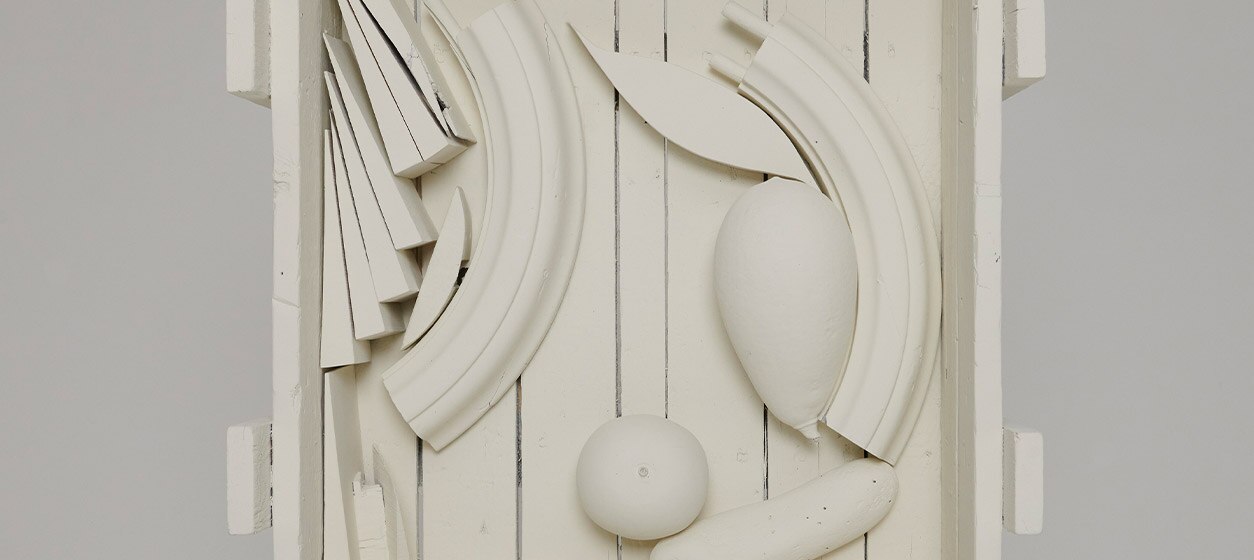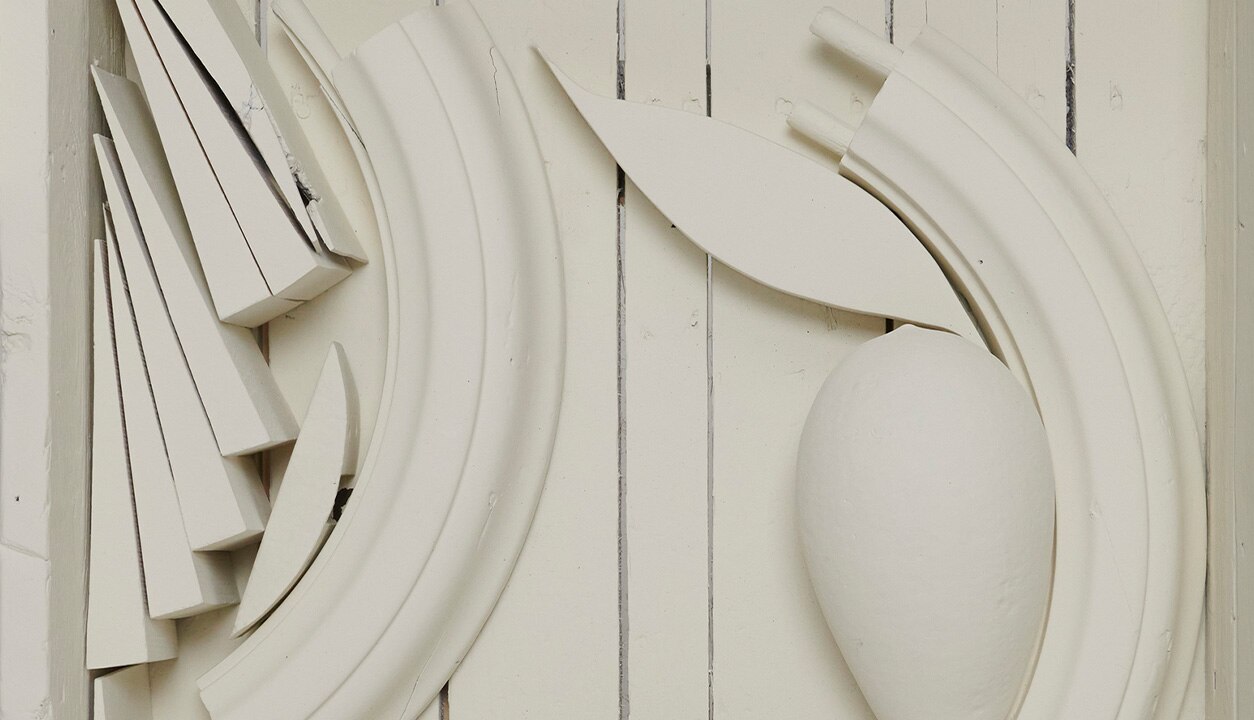BAG
Your bag is currently empty



Invited by the niece of the owner Gustavo Tavares while on an artist residency in the country, she foraged for pieces of reclaimed wood from a barn on the grounds of the garden and used them to create the sculpture Still Life (Villa Pancha). ‘I wanted to do something classic, with a sense of timelessness,’ says the British artist who is currently based in Zurich. ‘But also, something that would suggest transformation. So my mind went straight to the garden, a place where a significant transformation takes place in spring.’
The sculpture, in which found objects such as wooden door wedges and dried higüero fruit gourds are first painted white and then arranged carefully within a frame made out of a wooden crate, is a modern take on a classic still life painting. ‘Still lifes are interesting to me because they depict commonplace objects and scenes from everyday domestic life,’ says Parr, who does not shy away from the villa’s colonial past. ‘I saw the process of extracting and shipping these objects back to Europe as a kind of reverse journey and an effort to dislocate histories and to present us with a new trajectory loop.’ The monochrome white of Still Life (Villa Pancha) references white linen, which is ‘known for healing, but also transmission and rebirth,’ says the artist.